
AI-powered SEO automation transforms search optimization by streamlining technical audits, keyword research, content creation, competitor analysis, and real-time performance tracking. By combining machine intelligence with human strategy, businesses achieve faster insights, scalable growth, and sustained competitive advantage.
In today’s fast-paced digital landscape, search engine optimization (SEO) has evolved from manual keyword stuffing and backlink begging into a data-driven discipline powered by artificial intelligence (AI). With billions of web pages competing for attention, marketers and site owners are turning to AI-powered SEO automation to streamline workflows, uncover hidden opportunities, and achieve smarter, faster results.
What Is AI-Powered SEO Automation?
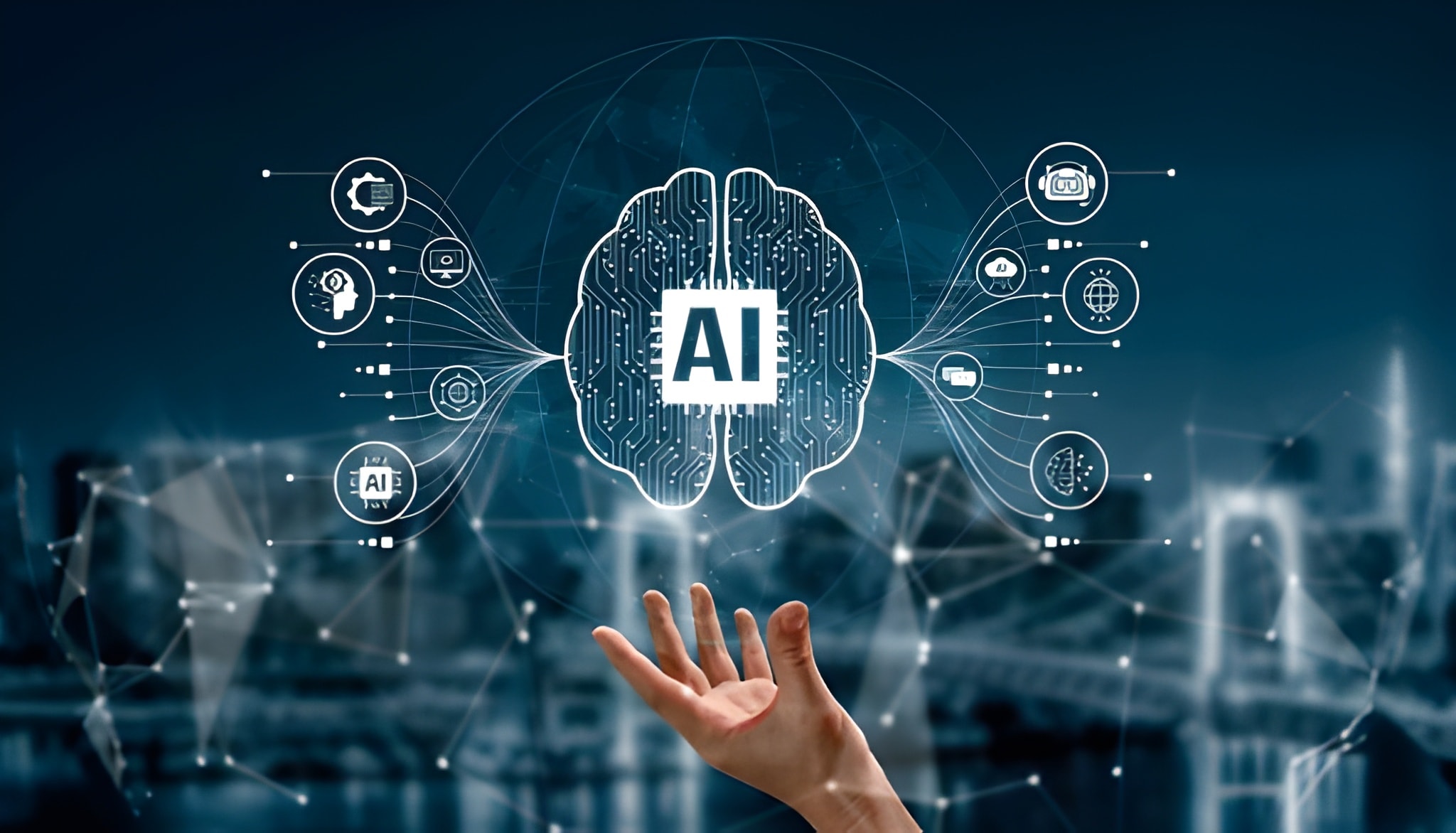
AI-powered SEO automation leverages machine learning, natural language processing (NLP), and predictive analytics to perform routine optimization tasks, analyze large datasets, and provide actionable recommendations. Instead of spending hours manually researching keywords, auditing content, or tracking rankings, you can deploy intelligent software to:
- Scan your website for technical issues like broken links, crawl errors, and page-speed bottlenecks
AI-powered tools continuously audit your website to detect broken internal and external links, crawlability issues, server errors, mobile usability problems, and slow-loading pages. These technical insights help you fix performance barriers that can hurt both user experience and search engine rankings. - Identify high-potential keywords and semantically related search terms
Advanced AI algorithms analyze search intent, keyword competitiveness, user behavior, and trending queries to uncover high-value short-tail and long-tail keywords. This also includes semantically related terms that help your content rank for a broader range of relevant searches and improve topical authority. - Generate SEO-friendly title tags, meta descriptions, and content outlines
AI assists in creating optimized title tags and compelling meta descriptions that improve click-through rates from search results. It also builds structured content outlines with proper heading hierarchy, keyword placement, and readability optimization—helping writers create search-ready content faster and more efficiently. - Analyze competitor strategies and backlink profiles
AI evaluates competitor websites to uncover their top-performing pages, keyword targeting strategies, content gaps, and backlink sources. By understanding which sites are linking to your competitors and why, you can design smarter outreach strategies and build stronger, higher-quality backlinks.
-
Monitor rankings, traffic trends, and link growth in real time
With real-time tracking dashboards, AI continuously monitors your keyword rankings, organic traffic patterns, user engagement metrics, and backlink acquisition. This allows you to quickly identify growth opportunities, detect ranking drops early, and adjust your SEO strategy proactively.
Key Benefits of Automating SEO with AI
Implementing AI SEO automation delivers multiple strategic advantages:
- Efficiency and scale:
AI automates time-consuming, repetitive SEO tasks such as site audits, performance checks, keyword tracking, and technical diagnostics. It can audit thousands of pages within minutes and process massive datasets instantly—eliminating manual effort and allowing teams to operate at enterprise scale with minimal resources. - Data-driven insights:
Machine learning algorithms detect hidden patterns in user behavior, search intent, content performance, and market trends that are often impossible for humans to identify manually. This leads to smarter decision-making based on predictive insights rather than guesswork. - Consistency:
AI ensures uniform enforcement of on-page SEO best practices, structured data, and content guidelines across all digital assets. It helps maintain a consistent brand voice, formatting standards, and compliance while significantly reducing the risk of costly human errors. - Competitive edge:
With AI-driven competitive analysis, you gain in-depth visibility into competitor keyword rankings, backlink strategies, traffic sources, and content performance. These insights help you identify gaps, refine your positioning, and develop stronger strategies to outperform competitors in search results. - Scalable reporting:
AI generates automated, customizable dashboards and real-time alerts for rankings, traffic, conversions, and backlink growth. This keeps stakeholders continuously informed and enables faster, data-backed decisions to optimize campaigns and accelerate business growth.
What to Look for in an AI-Powered SEO Tool
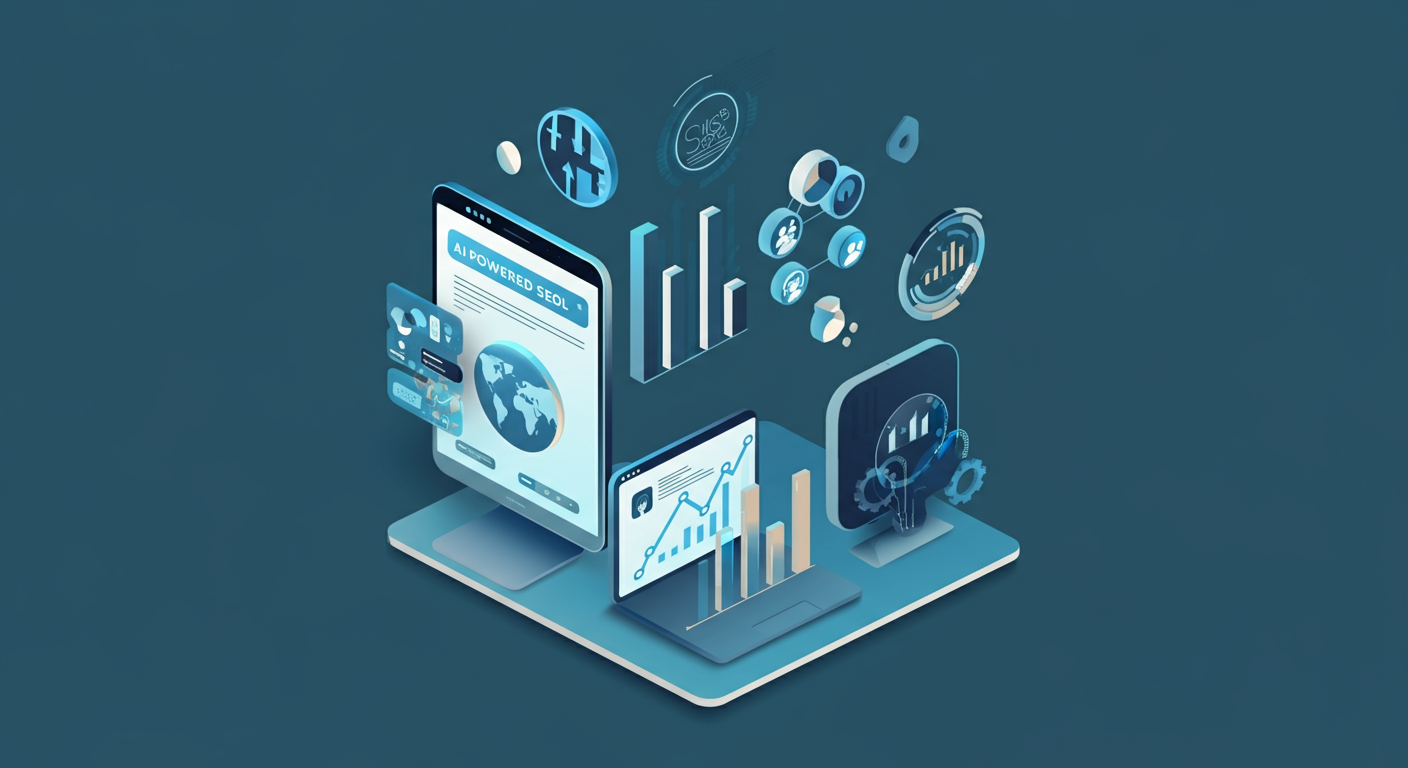
Not all AI SEO platforms are created equal. When evaluating solutions, consider these must-have features:
- Advanced keyword research:
A powerful AI SEO platform should go beyond basic keyword suggestions. Look for tools that offer semantic clustering, in-depth search intent analysis, long-tail keyword discovery, and predictive volume trends. These capabilities help you target high-impact keywords that align closely with user behavior and evolving search patterns. - On-page optimization:
Effective platforms provide automated title tag and meta description suggestions, real-time content scoring, internal linking ideas, and advanced readability checks. These features ensure your content is fully optimized for both search engines and users—improving rankings, dwell time, and conversion potential. - Technical SEO auditing:
Robust technical auditing tools should include real-time crawl simulations, broken link detection, Core Web Vitals monitoring, schema markup validation, indexability checks, and server performance tracking. This ensures your website remains structurally sound, fast, and fully compliant with search engine best practices. - Backlink intelligence:
High-quality backlink tools enable advanced link prospecting with authority and relevance scoring, toxic link detection for penalty prevention, competitor backlink gap analysis, and built-in outreach automation. This helps you build a strong, clean, and scalable backlink profile that boosts domain authority. - Custom reporting & alerts:
Look for platforms that offer drag-and-drop reporting dashboards, automated PDF and white-label report exports, and real-time Slack or email alerts. These features streamline communication with teams and clients while ensuring timely action on ranking changes, traffic drops, or technical issues. - Integration ecosystem:
A strong AI SEO tool should seamlessly connect with Google Analytics, Google Search Console, popular CMS platforms (like WordPress, Shopify, or Webflow), and CRM systems. These integrations create a unified data environment, enabling smarter automation, better reporting accuracy, and more efficient workflows.
Top AI-Powered SEO Automation Tools
Here are some leading platforms that excel at different aspects of AI-driven SEO automation:
- Ahrefs’ Content Explorer & Keywords Explorer: Uses machine learning to surface content gaps and predict ranking difficulty.
- Semrush’s SEO Writing Assistant & Site Audit: Offers real-time on-page recommendations and automated technical site health checks.
- Frase.ai: Generates content briefs, optimizes copy with NLP insights, and answers common user questions.
- Surfer SEO: Provides real-time correlation data on content structure, keyword density, and backlink profiles.
- BrightEdge: An enterprise solution with predictive forecasting, intent modeling, and automated recommendations.
- Clearscope: Focuses on content relevance by analyzing top-ranking pages and suggesting related terms.
Best Practices for Implementing AI SEO Automation
To maximize the impact of AI tools, follow these guidelines:
- Start with clear objectives: Define KPIs (rankings, traffic, conversions) and map tool outputs to your goals.
- Maintain human oversight: Use AI for recommendations but have SEO experts vet changes to ensure brand consistency.
- Integrate with existing workflows: Connect AI platforms to your CMS, analytics suite, and project management tools.
- Train your team: Invest in onboarding, run internal workshops, and document standard operating procedures.
- Iterate and refine: Continuously evaluate tool performance versus human benchmarks; adjust rules and thresholds over time.
Common Pitfalls and How to Avoid Them
Even the best AI tools can underdeliver if not used properly. Watch out for these mistakes:
- Blind automation: Pushing every AI suggestion live without review can lead to over-optimization or brand drift.
- Data overload: Too many alerts and metrics can paralyze decision-making; customize notifications to what matters.
- Neglecting technical foundations: Relying solely on content optimization while ignoring site speed or mobile usability hurts results.
- Underestimating training time: Teams need ramp-up time to interpret AI output correctly and integrate it effectively.
Measuring Success and ROI
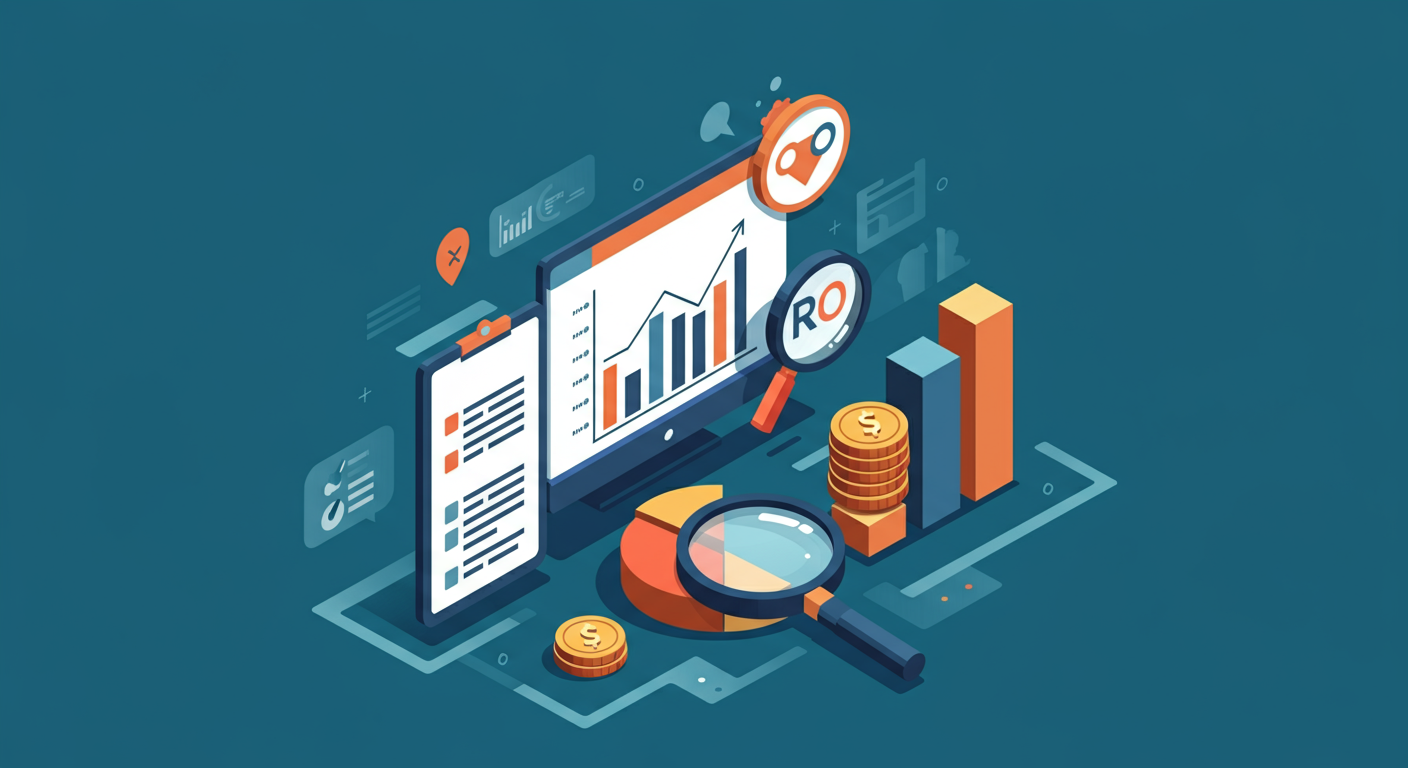
To prove the value of AI SEO automation, track both quantitative and qualitative metrics:
- Organic traffic growth: Compare month-over-month and year-over-year trends for pages optimized via AI tools.
- Ranking improvements: Monitor keyword positions before and after implementing AI-driven changes.
- Time saved: Calculate hours freed from manual audits, content research, and reporting tasks.
- Conversion rate uplift: Attribute leads, signups, or sales to specific landing pages enhanced with AI insights.
- Team productivity: Survey stakeholders on workflow improvements and tool usability.
Future Trends in AI-Driven SEO
The intersection of AI and SEO continues to evolve rapidly. Keep an eye on emerging trends such as:
- Generative AI content creation: More intelligent drafting, briefs, and A/B testing of page copy.
- Voice and visual search optimization: Automated schema markup and content adjustments for non-text queries.
- Predictive intent modeling: Anticipating user needs based on historical behavior and real-time signals.
- Hyper-personalization: Dynamic page variants tailored to user segments, all managed programmatically.
Conclusion
AI-powered SEO automation represents a paradigm shift in how we plan, execute, and measure search marketing. By combining machine intelligence with human expertise, you can scale your efforts, uncover deep insights, and stay ahead of the competition. Remember to choose tools that align with your objectives, maintain a culture of oversight and continuous improvement, and track the metrics that matter. With the right strategy and technologies in place, you’ll unlock faster, more efficient pathways to higher rankings and sustainable organic growth.
Ready to supercharge your SEO? Start evaluating AI automation tools today, run pilot projects on priority pages, and iterate based on real-world results. The future of search is intelligent—don’t get left behind.
Frequently Asked Questions
1. What is AI-powered SEO automation?
It uses machine learning and data analysis to automate SEO tasks like audits, keyword research, content optimization, rankings tracking, and competitor analysis.
2. Does AI replace human SEO experts?
No. AI enhances efficiency and insights, but human expertise is essential for strategy, creativity, brand voice, and final decisions.
3. Is AI SEO automation suitable for small businesses?
Yes. Many tools are scalable and budget-friendly, helping small businesses save time, improve rankings, and compete more effectively.
4. What are the biggest benefits of AI in SEO?
Key benefits include faster audits, data-driven decision-making, consistent optimization, competitive analysis, and automated reporting.
5. How long does it take to see results from AI SEO tools?
Initial improvements can appear within weeks, but sustainable ranking and traffic growth typically take 2–4 months with consistent optimization.


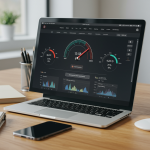


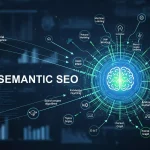





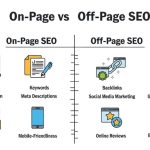

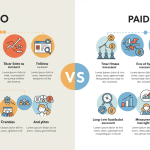
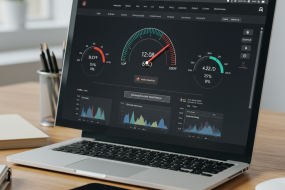


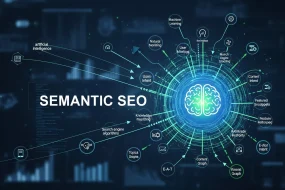
No Comments